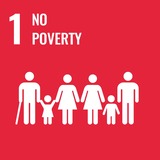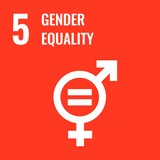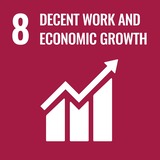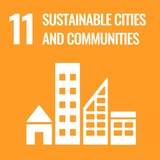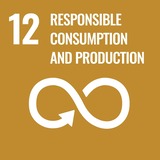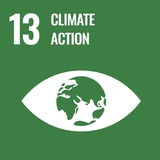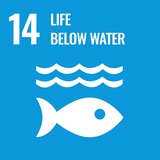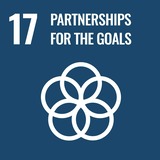No Trash Triangle Initiative protects our oceans from plastic waste
North Sulawesi, Indonesia
110 tonnes / year
Our story
How it began
The story of a clean Coral Triangle began when a group of scientists came together in North Sulawesi to study the plastic pollution problem off the coast of Bangka, an island community in the heart of the Coral Triangle. It was clear that most of the plastic in the environment was recyclable - the team just needed to figure out how to access the value and pass it through to the local community in a manner that supported a sustainable circular economic model.

Implementing a 'no plastic waste' model from scratch
The team set up a pilot waste management model on Bangka Island alongside an educational outreach and scholarship program. Their initiative has always had science at its heart and they believe that education and research are fundamental to tackling the plastic pollution problem. So they’ve created a model which not only reduces the amount of plastic entering the ocean but also engages the local community, creating “no plastic waste” advocates amongst the island’s young people.

Scaling it up up up
The initiative is now able to scaling their model through partnerships with global organizations, including CleanHub and PRLS, increasing the value of the plastic collected by opening up new distribution streams. PRLS was co-founded by William McDonough of the Cradle to Cradle Products Innovation Institute which now supports the initiative building out a local logistics network across the region to fund an increased number of plastic collection services and sorting facilities. In the next phase of their growth plan, they will bring this proven approach to other regions across the Coral Triangle. Urgent intervention is required to protect this incredibly biodiverse region from the impact of plastic pollution.

The process
"We want to transform North-Sulawesi into a role model region to stop ocean plastic at its source. The ultimate goal is to roll out a blueprint to other regions suffocated by plastic. But it's also about changing mentality and habits. We work hard to shift mindsets, using education, visible actions and community outreach to bring about change."
No Trash Triangle Initiative
Dr Miriam Weber • Co-FounderMaximise impact
We’re using science and technology to build out a model which we will roll out across the Coral Triangle region.
Empower local communities
We’re building a circular economic model which provides employment and education opportunities.
Reduce & recover
Our beach clean ups target waste already in the environment and our waste collection services and education programmes stop it from ever entering the environment.
Do no harm
Sustainability is at the heart of everything we do. We make sure the waste we collect is treated in the correct manner.
Set high standards
We work closely with our supply chain partners to make sure that our model is transparent and exemplary across the board.
FAQs
CleanHub empowers companies to take immediate responsibility for their plastic footprints. We connect ocean-loving brands with local communities, and facilitate the collection and safe processing of non-recyclable plastic. We understand the importance of proving impact, so we’ve built track & trace technology to provide evidence of how much plastic is collected, and where it ends up after we take care of it.
We choose recovery methods with the lowest environmental impact possible, and use our market position to enforce better working conditions for local workers.
80% of the plastic waste that ends up in the oceans is so-called flexible packaging or multilayer packaging, like chip packets, sauce sachets, etc. This material is either impossible to recycle or there is no demand from the market for the products (unlike water bottles which are commonly collected as they can be recycled, and so have ‘value’). Plastic that can’t be recycled is openly burned in small backyard fires or in landfills, or it is carried away into nature by the monsoon or strong winds. While we do collect all plastics, we focus on non-recyclable plastic to maximize our impact.
In order to stop ocean bound plastic, we need to significantly increase plastic recovery rates in high leakage locations. To achieve that, we empower communities around the world to cope with their own plastic waste, create incentives, develop waste management standards and foster local entrepreneurship. In our network of recovery endpoints we provide critical off-take agreements to safely treat plastic waste.
Plastic pollution is a global problem that affects us all. CleanHub is building a global network of local Collection Hubs in high impact locations to facilitate the collection and safe processing of non-recyclable plastic. We operate primarily in South (East) Asia which is the gateway for more than 80% of all plastic that enters our oceans. With your contribution we can reduce the mismanagement of plastic waste in these regions to eventually stop this environmental crisis.
Recyclable goods are sold for local recycling. Non-recyclables are sent for co-processing.
Co-processing refers to the simultaneous recycling of mineral materials and recovery of energy in the process of cement manufacturing and achieves a superior environmental performance as compared to landfill and incineration. For co-processing recovery we partner with Geocycle.
To learn more, read our blog - What happens to the collected waste
Plastic neutrality means that for every amount of plastic created, an equal amount of plastic waste is retrieved from the environment to be appropriately disposed of - either recycled or repurposed.
We work with brands to calculate their plastic footprint and recover the equivalent amount from the environment in high leakage countries, such as Indonesia or India. Some brands want to go further and recover more plastic than they emit, earning them Plastic Neutral + status. . Every contribution directly prevents plastic from entering our oceans and supports the development of local waste management infrastructure.
To stop plastic from entering the environment, we need to get to a point where the material is collected as close to the consumer as possible, and intercepted before it can reach the ocean. The majority of our plastic efforts are door-to-door collection or other smart ways to aggregate waste in one point. We also finance projects with passive technologies that catch plastic in rivers. The smallest fraction of plastic stems from beach cleanups or is directly sourced from the ocean.
Recovering plastic from the environment involves three distinct operations. Firstly the collection of the plastic, secondly the sorting of plastic into its unique types and thirdly the safe and final treatment. We digitize the recovery of ocean bound plastic from start to finish.Our Hubs use our technology to track the full collection process, which means we can verify every piece of plastic that is collected and what happens to it after we take care of it.
Watch this video to see how it works
We choose the best recovery method according to three steps. Firstly, available recovery options are ranked according to the waste management hierarchy, i.e. Recycling > Energy Recovery > Landfill. Secondly, we rank all options on the basis of life-cycle assessment results that determine related Co2 emissions. Thirdly, all recovery options are ranked by their level of technology and safety. CleanHub only works with recovery companies that operate according to the European code of conduct.
Sign up to our newsletter
Subscribe to receive monthly insights. Plus, we’ll collect 1kg of plastic on your behalf.
Our accreditation
We're the first plastic credit system verified by TÜV SÜD


